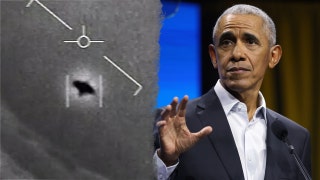In Episode 3 of the Fox Nation special "The Unauthorized History of Taxes", host Bret Baier is joined by prominent guests to examine how the Revenue Act of 1913 fundamentally changed the relationship between taxpayers and the federal government, setting in motion a century-long expansion of centralized power.
Through Prohibition, the Depression and two World Wars, Americans were called upon to finance an ever-growing federal government. In 1913, then-President Woodrow Wilson signed the Federal Reserve Act, establishing the Federal Reserve System as the central bank of the United States in order to provide the nation with a safer, more flexible, and more stable monetary and financial system.
"The new system provided the federal government with sweeping new powers when it came to tax collection," Baier explained.
"Initially, this wasn't a big deal because we were operating at a time where the federal government only tried to raise the amount of revenue it needs to sustain its current operations," one guest explained. "But then ... the U.S. enters into World War I and it suddenly creates a new demand on the federal government and they look around and say 'Wait a minute, we have this new tax power that's been passed.'"
CLICK HERE TO LEARN MORE ABOUT FOX NATION
World War I ended in November 1918, but the income tax remained. Now with a permanent professional bureaucracy in place and an enforcement arm in the Internal Revenue Service, government would expand and taxes would grow to cover the cost.
"The income tax proved surprisingly effective, and while some resisted, there was little push back or rebellion," Baier explained.
To watch all five episodes of "The Unauthorized History of Taxes," available now on the platform, visit Fox Nation and sign up today.
Fox Nation programs are viewable on-demand and from your mobile device app, but only for Fox Nation subscribers. Go to Fox Nation to start a free trial and watch the extensive library from your favorite Fox News personalities.









































